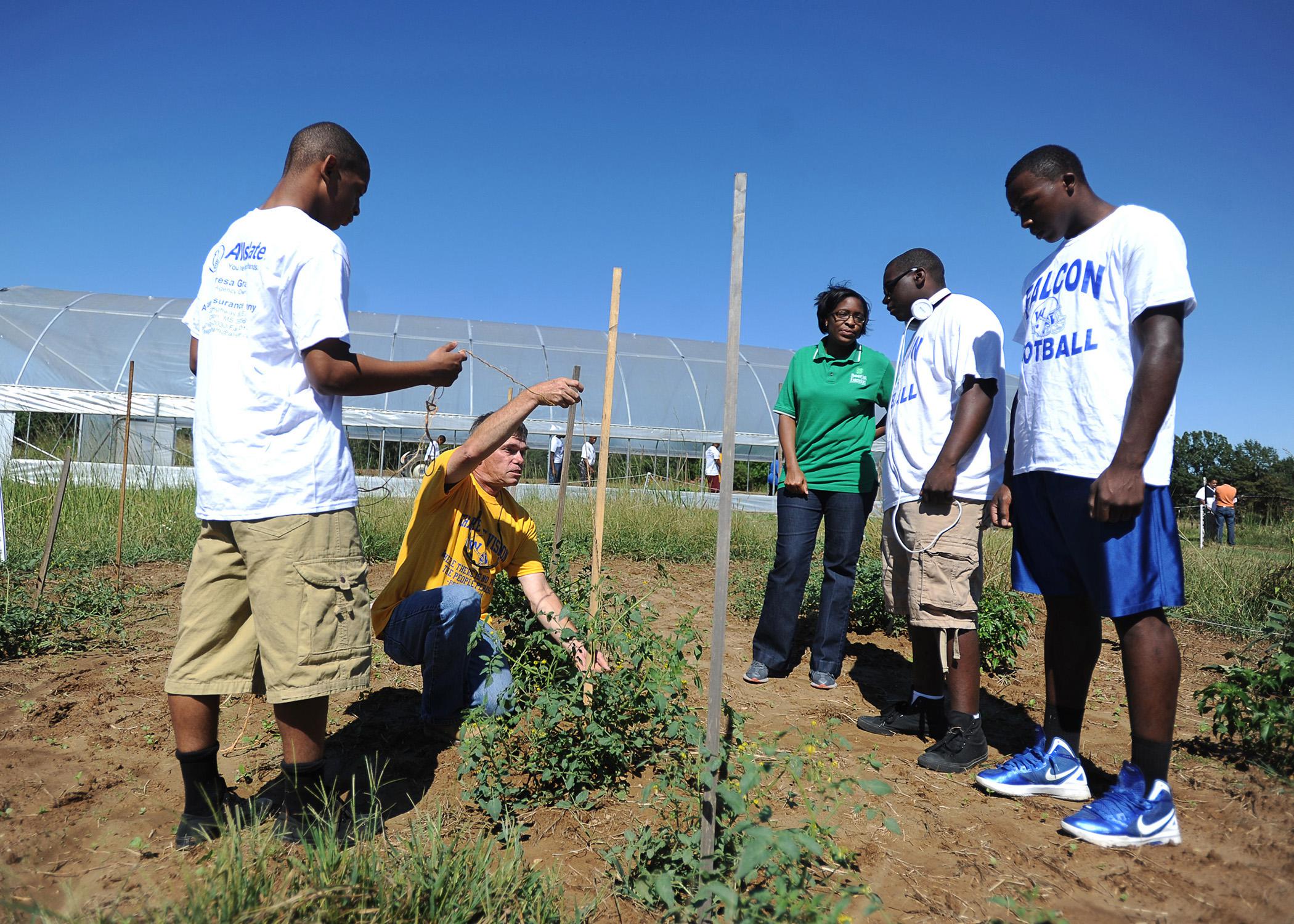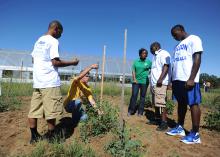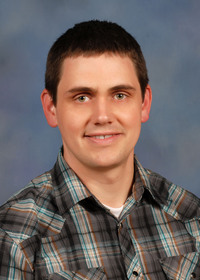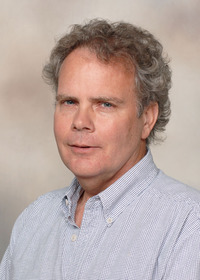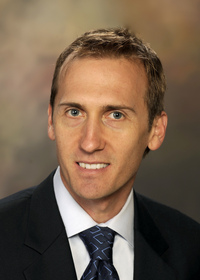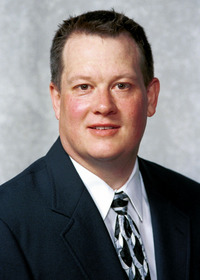Information Possibly Outdated
The information presented on this page was originally released on December 11, 2013. It may not be outdated, but please search our site for more current information. If you plan to quote or reference this information in a publication, please check with the Extension specialist or author before proceeding.
Garden project produces fruits, vegetables, men
JACKSON -- Tomatoes, watermelons and young men have been growing in an urban garden that is much more than an agricultural project.
Hinds County 4-H agent Rocheryl Ware has known football coach Jeff Gibson as a 4-H volunteer leader since 2004. So when he made an unannounced visit to her office last year, she was not surprised he was ready to start a club at his new school, Wingfield High School.
“Coach Gibson is a very determined person when it comes to helping his players develop both on and off the football field,” she said. “He has used 4-H to develop life skills with every team he has coached in recent years.”
Ware said several factors have come together to make the new Dr. George Washington Carver Future Scientists 4-H Club succeed. One bonus has been the location for its urban garden. Instead of establishing a plot at the school as originally planned, players have developed a 2-acre garden at Foot Print Farms, a 98-acre urban-rural farm located in Jackson on South Drive, between Clinton Boulevard and Highway 80. By locating there, the 4-H members and club leaders also gained access to equipment, expertise and a real farming experience.
“Foot Print Farms is a cooperative farm that gave the club access to the land. Farm owner, Dr. Cindy Ayers-Elliott, assisted the club and drew in Dr. Bill Evans, a horticulture researcher with Mississippi State University,” Ware said.
Ayers-Elliott knew Evans from his research at the MSU Truck Crops Branch Experiment Station in Crystal Springs. She said the garden project helped the inner-city teens understand what they were learning in class.
“As the boys saw the vines growing, we could see the boys growing,” she said. “This is the whole reason for what I do with this farm. This project showed them a whole new way of life and has changed their lives.”
The farm owner said a variety of people from the community have helped with the project. Chefs from local restaurants have talked to them about preparing garden produce. Evans and others have contributed their plant knowledge and labor assistance.
“Dr. Evans not only brought his plant science expertise, he also brought an open heart and a willingness to help,” she said. “Some of these volunteers will be able to provide letters of recommendation for the young men they have gotten to know.”
Evans described his volunteer experience as “ridiculously rewarding” and said the results are evident.
“Coach Gibson connects the dots between doing the little things that contribute to plant growth and doing little things that help the student-athletes develop,” Evans said. “Coach is very careful who he allows to work on the project and to participate in the football program. The result is one of the strongest football teams Wingfield has had in years.”
Evans said he appreciates the attitudes of the players, both in their eagerness to work in the garden and to learn.
“They come from challenges that most of us cannot relate to, but they are shining brightly through this project,” he said.
For Gibson, volunteers like Evans and Ayers-Elliott were able to provide much more than he and his assistants could provide alone. Little tips, such as proper use of a hoe to remove weeds, helped protect the crops and workers’ backs.
“We were overworking ourselves. It helped to have access to some of the farm’s equipment, as well as Dr. Evan’s expertise at repairing the tiller and giving us tips for saving the crop from deer damage,” Gibson said. “I grew up on a farm but was not exposed to the academic side of agriculture.”
The coach said the volunteers helped make the students better citizens.
“When you put good people around kids, they will grow in the right direction, just like crops will do with the right input,” he said.
Gibson said the benefits of the project can be seen in the classroom, on the field and in the attitudes of his players. Money raised from selling the produce went back into the football program, purchasing weights and other items for the team.
The project’s success caught national attention, and Gibson and Ayers-Elliott were invited to be on “Katie,” which is Katie Couric’s New York City-based show. The program aired Dec. 9.
Gibson said he plans to be even more successful the second year of the project.
“We are going to improve our timing. We want to start earlier in the year. We also know we need to work around transportation and schedule challenges,” he said.

